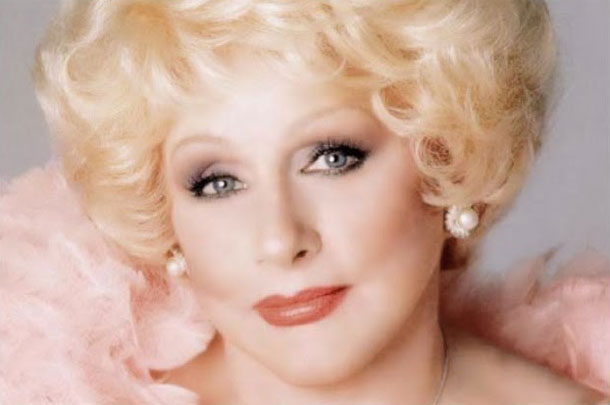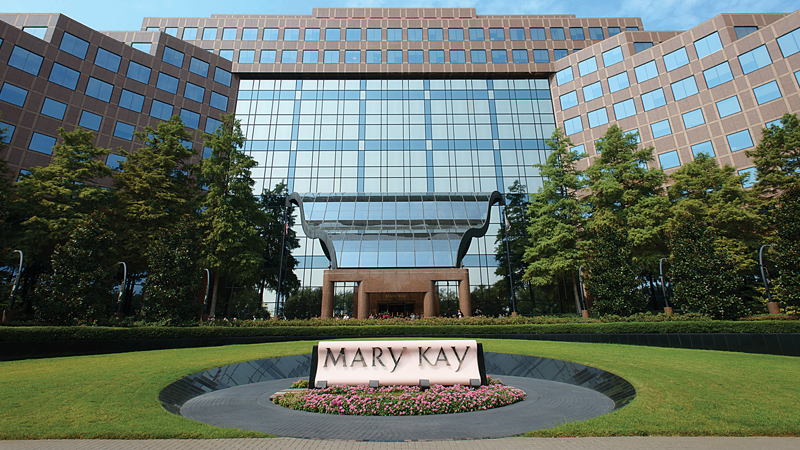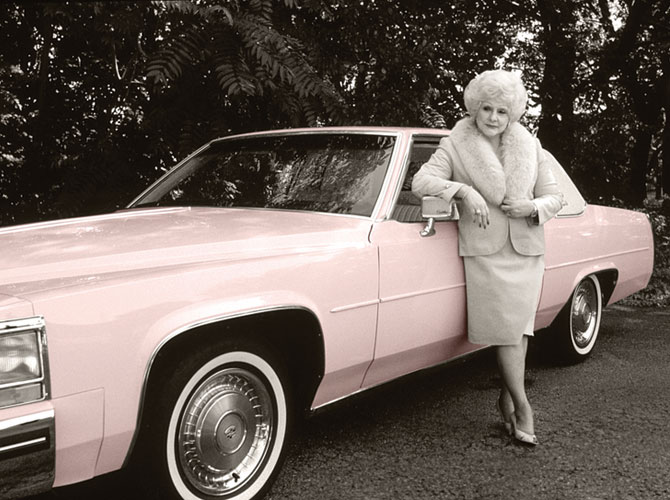By: Elikem Tsikata
 Ralph Waldo Emerson famously said, “To be yourself in a world that is constantly trying to make you something else is the greatest accomplishment.” In today’s world, we all feel external pressures to assimilate and to change who we are. We are taught that if you want to be accepted to A school, B and C is required. If you want to be in the X profession, you have to dress and act a certain way. For Manar Morales, a professional opportunity at the cost of compromising one’s individuality is an unacceptable proposition. The former litigator-turned-CEO not only personifies Emerson’s mantra but actively creates it for others.
Ralph Waldo Emerson famously said, “To be yourself in a world that is constantly trying to make you something else is the greatest accomplishment.” In today’s world, we all feel external pressures to assimilate and to change who we are. We are taught that if you want to be accepted to A school, B and C is required. If you want to be in the X profession, you have to dress and act a certain way. For Manar Morales, a professional opportunity at the cost of compromising one’s individuality is an unacceptable proposition. The former litigator-turned-CEO not only personifies Emerson’s mantra but actively creates it for others.
 Manar is the founder, President, and CEO of the Diversity & Flexibility Alliance. The membership-based think tank partners with organizations to promote diversity and inclusion within the workplace. The company consults and provides tangible plans for workplace flexibility and diversity initiatives, creating unique avenues that challenge traditional theories of various sectors.
Manar is the founder, President, and CEO of the Diversity & Flexibility Alliance. The membership-based think tank partners with organizations to promote diversity and inclusion within the workplace. The company consults and provides tangible plans for workplace flexibility and diversity initiatives, creating unique avenues that challenge traditional theories of various sectors.
Family matters
Manar and I quickly bonded over similar upbringings. We both had parents who immigrated to the United States and instilled in us a pride of our heritage. Both of our parents molded paths into their professional fields that were not considered the norm for people who looked like us at the time. For Manar, this instilled a natural belief that she could achieve what she wanted, but she knew that a conscious determination and effort was necessary.
Manar grew up in Long Island, New York. The daughter of Egyptian immigrants, she had an early interest in employment and labor law. Simultaneously, she gained early exposure to tangible business experience. After graduating from Cornell’s Industrial and Labor Relations School, Manar worked as an Assistant Buyer at Saks Fifth Avenue in New York City. This could be considered her first entrepreneurial work experience as she managed sales and purchase orders. She then went to Catholic University’s Columbus School of Law, where she refocused her studies on employment law. After graduating, Manar became an employment law litigator.
professional path maker
I asked Manar what influenced her transition from practice to starting the company, and she quickly responded.
“I had my first son.”
 Smiling, she admitted than an experience with a less than stellar nanny made her reconsider staying on as a full-time employment litigator. She knew she wanted to continue the work she loved, but that it may have to be reduced to a part-time basis. Manar proceeded to switch firms in order to work a part-time schedule and became of-counsel, while simultaneously starting work as an adjunct law professor at Georgetown University, teaching employment law and entrepreneurship. As she adjusted to her new life, women in the legal field and some who had left it, reached out to her. They expressed their appreciation for her professional course and wished they had done something similar. This made Manar question why women in the legal field were not getting the opportunities she had experienced to this point.
Smiling, she admitted than an experience with a less than stellar nanny made her reconsider staying on as a full-time employment litigator. She knew she wanted to continue the work she loved, but that it may have to be reduced to a part-time basis. Manar proceeded to switch firms in order to work a part-time schedule and became of-counsel, while simultaneously starting work as an adjunct law professor at Georgetown University, teaching employment law and entrepreneurship. As she adjusted to her new life, women in the legal field and some who had left it, reached out to her. They expressed their appreciation for her professional course and wished they had done something similar. This made Manar question why women in the legal field were not getting the opportunities she had experienced to this point.
“I don’t think I had a proven path. It was really about me creating a path. For all the people who said, ‘Oh there’s no way you can be a litigator and do part-time’, there was a part of me that said, ‘No, actually I think I can.’ I may not be able to in one given environment, but I know that I can find an environment where I can.”
This premise opened Manar’s eyes to the possibilities of where the legal profession could go. The crucial question she asked at that point was how can we take the profession to the next level, providing opportunities for people to have more choices?
core principal: flexibility
 The Diversity & Flexibility Alliance is classified as a Benefit LLC. Their goal is to create a community of members who value diversity and inclusion by looking at ways to leverage workplace flexibility to increase top talent.
The Diversity & Flexibility Alliance is classified as a Benefit LLC. Their goal is to create a community of members who value diversity and inclusion by looking at ways to leverage workplace flexibility to increase top talent.
“For us, it’s important that when people consider flexibility, that they de-parent, de-gender, and de-stigmatize flexibility. Our goal is to emphasize that flexibility is something that’s available to everybody, and everybody needs it for a variety of reasons.”
The company’s primary membership consists of law firms and corporations. They also work with associations, non-profits, professional service organizations, and tech-companies. As membership grew, Manar saw great value in the exchange of best practices over various sectors. The company could provide organizations of varying functions the opportunity to learn from one another. For the legal industry, Manar emphasized the importance of this. Notoriously stuck in its ways, Manar discussed how our profession needed to avoid the “echo-chamber” of only listening to itself, and embrace the other industries’ proven methods of effective workplace flexibility.
operating a business in the wake of two pandemics
Manar and I discussed how the COVID-19 pandemic has affected her operation of the business. Operationally, Manar said they were lucky and well-prepared for COVID. The Diversity & Flexibility Alliance has always been a hybrid organization. They ran virtually in many aspects, with some team members being fully remote already. In terms of providing services for their members, Manar says one of the biggest challenges they faced prior to COVID was the status quo regarding working environments. COVID’s natural effect has been the changing of how the world views a working environment and what that future will look like. For Manar and her team, this uncharted future provides a new opportunity to consider how to further the ideals of diversity and workplace flexibility moving forward. Additionally, she notes that while her team has been accustomed to hybrid styles of work, many members have not. She appreciates how this has created avenues for more (virtual) face-to-face with members, a more conscious engagement through technology. She is hopeful this time can be leveraged to further improve her client’s approaches to the future workplace.
We also discussed the other pandemic plaguing our country: systemic racism. As an agent of change in her own capacity, Manar shared how the heightened focus on social and racial injustice has affected her approach. She began by reflecting on the widespread acts of companies who made public statements denouncing racism. While she believes these statements can be important, she knows the actions that follow are truly the key.
“You have to create change internally. Public statements without internal reflection and change… I don’t think are effective. So for us, it was really about asking our members ‘What are you doing internally? Where can you create change? What are systemic changes you will be making moving forward?’”
Manar was encouraged by the greater sense of urgency among members, but she was more than aware that these issues cannot be fixed without continued focus and effort.
“Everybody can have it all … all is defined by you”
 Manar’s leadership as an agent of change extends beyond her role at the Diversity & Flexibility Alliance. She frequently speaks on the topics of diversity, inclusion, woman’s leadership, and individual success. When I asked her about the importance of educating others about these topics, she reemphasized her core mission of giving others options.
Manar’s leadership as an agent of change extends beyond her role at the Diversity & Flexibility Alliance. She frequently speaks on the topics of diversity, inclusion, woman’s leadership, and individual success. When I asked her about the importance of educating others about these topics, she reemphasized her core mission of giving others options.
“There’s a lot of debate on whether or not women can have it all. I think that everybody can have it all because I am a big believer that ‘all’ is defined by you. My ‘all’ may look different than your ‘all’ or someone else’s, but it’s my strong belief that we need to create opportunities for people to be able to have what they define as their ‘all.’”
This quote really stuck with me. Manar’s ‘all’ includes her family, the work she loves and creating positive change for others. I think often we find the task of juggling our priorities to be daunting. Careers, family, social life, fulfillment; some would call the pursuit of all at once unrealistic. And yet, as I think about Manar’s words and mindset, it actually seems simple. Determine what you want. Make action steps to have it. Work hard.
what do diversity and inclusion mean to you?
“Not just creating opportunities, but creating opportunities where people feel valued for who they are. People want to go where they are valued, not just tolerated. We always have to ask ‘Are we creating opportunities where people can feel proud of who they are and show up as that?”
Manar lives and breathes every bit of Emerson’s words, fighting against societal norms that we must suppress aspects of our identity for professional success. Our differences enrich professional environments and make them better. Instead of changing herself, she’s made it her mission to change the environment.
advice for entrepreneurs
“Do what inspires you. I’m a big believer that mindset drives so much of our respect. People should do what they love. Once you make that commitment, you’ll figure out the path from there.”
Manar’s passion is undoubtedly at the core of her success. She encourages entrepreneurs and professionals not to negotiate against themselves. She notes that often we say we want something but immediately create a barrier for why we can’t have it. She implores us to reject this mentality, set our sights on what we want, then begin to act.
For more information on Manar and the Diversity & Flexibility Alliance, including details to their Annual Conference, you can click here.
 Elikem Tsikata, at the time of this post, is a third-year law student at Penn State Dickinson Law. He is a Ghanaian-American from McLean, Virginia, and a graduate of Miami University (OH). Elikem is pursuing a certificate in Entrepreneurship Law with a Transactional concentration. Elikem serves as President of Dickinson Law’s Student Bar Association. He is also a Research Assistant to Professor Samantha Prince.
Elikem Tsikata, at the time of this post, is a third-year law student at Penn State Dickinson Law. He is a Ghanaian-American from McLean, Virginia, and a graduate of Miami University (OH). Elikem is pursuing a certificate in Entrepreneurship Law with a Transactional concentration. Elikem serves as President of Dickinson Law’s Student Bar Association. He is also a Research Assistant to Professor Samantha Prince.
Photo Sources:
https://twitter.com/manarmorales
https://www.facebook.com/dfalliance/
http://mondayswithmooney.com/2018/04/creating-your-path/
https://dfalliance.com/solutions/
https://dfalliance.com/solutions/diversity-framework/





 Mary Kathlyn Wagner was born in 1918 in Hot Wells, Texas. At the age of twenty-one, she became a salesperson for the Stanley Home Products company. In order to encourage people to buy the household items from the company, she would host parties. After much success with Stanley Home Products, she was hired by World Gifts in 1952. She spent roughly a decade with that company before leaving after another man (that she had trained) got promoted above her and was making a much higher salary than she was.
Mary Kathlyn Wagner was born in 1918 in Hot Wells, Texas. At the age of twenty-one, she became a salesperson for the Stanley Home Products company. In order to encourage people to buy the household items from the company, she would host parties. After much success with Stanley Home Products, she was hired by World Gifts in 1952. She spent roughly a decade with that company before leaving after another man (that she had trained) got promoted above her and was making a much higher salary than she was. At the age of forty-five after becoming disenchanted with the traditional workplace, entrepreneur Mary Kay was determined to create her own business. She started her own cosmetics company from scratch, Mary Kay Inc., in 1963 with an initial investment of $5,000. She used this initial investment to rent a small office and manufacture an initial inventory of the skin care products. She also recruited nine independent salespeople. In the 1960’s, most American bathrooms were white. Mary Kay chose the infamous pink packaging for her products so that they could be displayed on bathroom counters.
At the age of forty-five after becoming disenchanted with the traditional workplace, entrepreneur Mary Kay was determined to create her own business. She started her own cosmetics company from scratch, Mary Kay Inc., in 1963 with an initial investment of $5,000. She used this initial investment to rent a small office and manufacture an initial inventory of the skin care products. She also recruited nine independent salespeople. In the 1960’s, most American bathrooms were white. Mary Kay chose the infamous pink packaging for her products so that they could be displayed on bathroom counters. In 1968, Mary Kay purchased the first pink Cadillac. The car served as a mobile advertisement for the business. The following year, she gave her top five salespeople pink 1970 Coup de Ville cars. She had an exclusive agreement with General Motors to sell cars in the specific shade of pink only to Mary Kay. The beauty consultant winners of the cars received a company-paid, two-year lease, and then could choose to buy the cars at the end of the lease period. Mary Kay had different car incentive levels for her beauty consultants. Some beauty consultants could earn the use of a silver Chevrolet Malibu or a cash payment of $425 a month. Other beauty consultants could earn a black Chevrolet Equinox or Traverse, a Mini Cooper, or $500 a month. The top performers could choose between the pink Cadillac or $900 a month. Ford Mustangs and BMWs have been introduced as incentive options in recent years, but the pink Cadillac remains the top award for consultants whose sales exceed $100,000 in a year.
In 1968, Mary Kay purchased the first pink Cadillac. The car served as a mobile advertisement for the business. The following year, she gave her top five salespeople pink 1970 Coup de Ville cars. She had an exclusive agreement with General Motors to sell cars in the specific shade of pink only to Mary Kay. The beauty consultant winners of the cars received a company-paid, two-year lease, and then could choose to buy the cars at the end of the lease period. Mary Kay had different car incentive levels for her beauty consultants. Some beauty consultants could earn the use of a silver Chevrolet Malibu or a cash payment of $425 a month. Other beauty consultants could earn a black Chevrolet Equinox or Traverse, a Mini Cooper, or $500 a month. The top performers could choose between the pink Cadillac or $900 a month. Ford Mustangs and BMWs have been introduced as incentive options in recent years, but the pink Cadillac remains the top award for consultants whose sales exceed $100,000 in a year. Megan (Meg) Smith is a rising 3L at Penn State Dickinson Law. She has bachelor’s degrees in International Business and French and an M.B.A. with a concentration in finance. Prior to coming to law school, Meg spent nearly twenty years working for Alcoa Corp. in corporate finance and government affairs. Meg is interested in practicing corporate law. To contact Meg, please email her at mps6962@psu.edu.
Megan (Meg) Smith is a rising 3L at Penn State Dickinson Law. She has bachelor’s degrees in International Business and French and an M.B.A. with a concentration in finance. Prior to coming to law school, Meg spent nearly twenty years working for Alcoa Corp. in corporate finance and government affairs. Meg is interested in practicing corporate law. To contact Meg, please email her at mps6962@psu.edu.






















